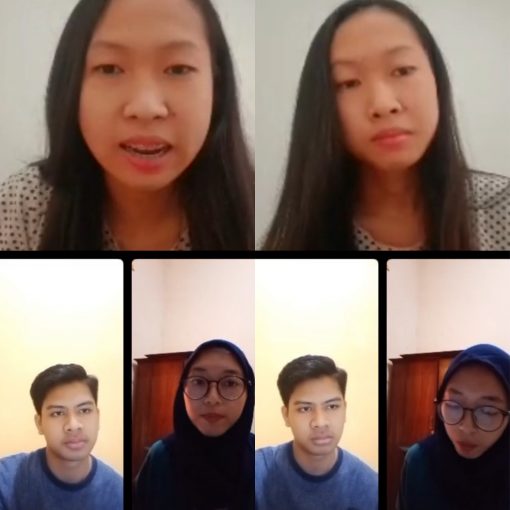
Yogyakarta, June 4th 2021━In order to carry out activities in the field of education and socialization related to sexual violence, the FISIPOL Crisis Center held the second FCC Talk in collaboration with LPPM Sintesa on Friday (4/6). Titled as “Not an Ordinary Man: Toxic Masculinity and the Role of Men in Creating Safe Spaces on Campus”, this second FCC Talk was hosted by three speakers, they were Puspa and Yosep from the Education and Socialization Division of the FISIPOL Crisis Center, and Arum from the Division of Internal Development of LPPM Sintesa.
Talking about toxic masculinity, last March, LPPM Sintesa just held a ‘SINDIKAT’ discussion which discussed the sustainability of toxic masculinity that is still perpetuated in our society today. Arum explained that based on the results of the discussion, the phenomenon of toxic masculinity can survive because it is closely related to the culture of sexism, patriarchy, and other hegemonic gender views.
The existence of this toxic masculinity eventually raises new misconceptions, one of which is related to the possibility of men being victims of sexual violence. In fact, according to Yosep, sexual violence arises because of power relations, regardless of one’s gender identity. Thus, as long as there is an imbalance of relations in a relationship, men also have the same possibility as women in experiencing sexual violence.
In addition, toxic masculinity is also related to the expectations and gender stereotypes that exist in society. So far, the concept of masculinity that has developed in society has become an ideal description of men’s nature. Therefore, men also become compelled to deny their feelings, and instead are compelled to express their feelings through violence. This is also an obstacle when men experience sexual violence. Male victims will actually experience humiliation and ridicule when reporting the sexual violence they experience, because of the ‘masculinity’ that develops in society.
If it is pulled further, this shows that there is an urgency and an important role for men in creating a safe space on campus. Both Yosep, Puspa, and Arum shared their views on this issue by including concrete examples that could clarify the presentation.
The audience who watched the FCC Talk on Instagram Live this time also showed high enthusiasm by asking many questions through the comments column. Just like the two main topics discussed at the beginning of the event, the questions that came in were answered in turn by the three speakers. A rerun of the second FCC Talk can be seen on the FISIPOL Crisis Center IGTV channel.
